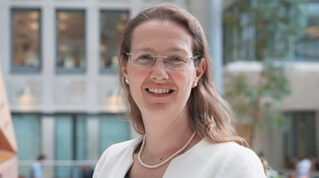Young carers should be recognised on the government’s individualised learner record (ILR) to better identify and support their needs in further education, sector leaders have said.
Making this “simple change” would also help address the “gaping hole” in data that is recorded between FE learners and school and higher education students who have caring responsibilities.
The Department for Education added young carers to the annual school census in 2023 for the first time, while UCAS also added the group to its university application forms last year.
DfE minister Baroness Barran recently told parliament that making this amendment to the school census led to the identification of 38,983 young carers, “raising their visibility in the school system and allowing schools to better identify and support their young carers”.
She said this is providing the department with “strong evidence on both the numbers of young carers and their educational outcomes” as well as an annual data collection to establish long-term trends.
Yet the DfE has made no such amendment to the ILR, which records and tracks individual students in FE.
Andy McGowan, the policy and practice manager at charity Carers Trust, said the new data on young carers in schools through the census and universities through UCAS application is “vital” to understanding the educational challenges and employment routes young carers face compared to their peers.
“We are now left with a gaping hole in the data in further education,” McGowan told FE Week.
“This simple change [adding young carers to the ILR] would help the government to see the huge pressures young carers in education face. Only then can they truly understand how their policies affect young carers as they approach a key stage of their lives and transition into adulthood.”
A DfE spokesperson told FE Week that “further recording requirements will be considered in due course” for young carers. They added: “At the moment we are considering what the data tells us and what additional measures we need to consider going forward.”
Young adult carers are described as people aged between 16 to 25, who look after a friend or relative with a disability, illness, mental health condition, or a substance problem and cannot cope without help.
Data from Learning and Work Institute suggests that young carers are three times more likely to become not in education, employment or training (NEET) and four times more likely to drop out of college than their peers.
Latest statistics of the annual school census found young carers in schools were nearly twice as likely to be persistently absent as their peers, and nearly one in four of young carers missed 10 per cent or more of their education last year.
The Carers Trust estimates that 10 per cent of all students are likely to be young adult carers – at least 370,000 in the UK.
A separate data field on the ILR would help evaluate what employment routes young adult carers are taking, experts told FE Week.
Eileen Darby, director of safeguarding and wellbeing at Chichester College Group, said: “We hear that young carers won’t do certain careers like police uniform services because they have to leave their parents. Anything that involves unsociable hours, or nursing as they’re already doing that at home.”
Nicola Aylward, head of learning for young people at Learning and Work Institute, said adding young carers to the ILR would give a “better evidence base for tailoring support” that could look at how the means-tested 16 to 19 bursary fund impacts young carers.
Former skills minister Robert Halfon stated in a parliamentary question last month, that DfE allocated over £160 million of bursary funding in 2023/24 to help disadvantaged 16 to 19 year olds meet costs.
It is unclear how many young adult carers received 16 to 19 bursary funding due to the data collection gap.
Awareness training ‘practically doubled’ numbers
Colleges have their own ways of recording young carers, through asking students during the interview and enrolment process, and through lecturers and feeder schools, if they have caring responsibilities.
Greenhead College in Huddersfield “practically doubled” the number of carers it recorded this year, just by emphasising types of caring responsibilities via social media and parent/carer updates.
“I still think that students don’t know they are carers, so we will be doing more of that early on next year,” said Claire Parr, director of SEND and inclusion at the college.
Leaders fear that hundreds of young carers go under the radar every year. They claim that recognising young carers through the ILR would help address this.

















Your thoughts